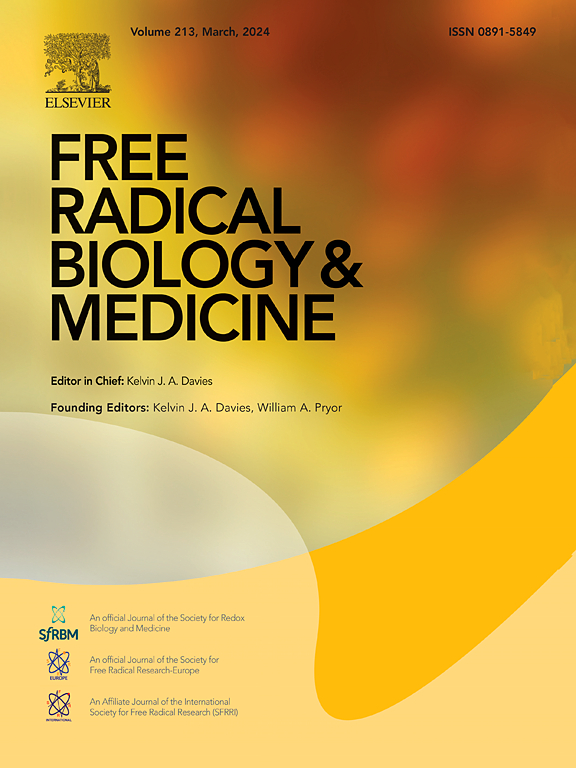The clinical-grade CBP/ p300 inhibitor CCS1477 represses the global NRF2-dependent cytoprotective transcription program and re-sensitizes cancer cells to chemotherapeutic drugs
IF 7.1
2区 生物学
Q1 BIOCHEMISTRY & MOLECULAR BIOLOGY
引用次数: 0
Abstract
Constitutive activation of NRF2 provides a selective advantage to malignant tumour clones through the hijacking of the NRF2-dependent cytoprotective transcriptional program, which allows the cancer cells to survive and thrive in the chemically stressful tumour niche, whilst also providing resistance to anti-cancer drugs due to the upregulation of xenobiotic metabolizing enzymes and drug efflux pumps. Through a small-molecule epigenetic screen carried out in KEAP1 mutant lung cancer cells, in this study, we identified CCS1477 (Inobrodib) to be an inhibitor of the global NRF2-dependent transcription program. Mechanistically, CCS1477 is able to repress NRF2’s cytoprotective response through the inhibition of its obligate transcriptional activator partner CBP/p300. Importantly, in addition to repressing NRF2-dependent anti-oxidative stress and xenobiotic metabolizing enzyme gene expression, CCS1477 treatment is also able to reverse the chemoresistance phenotype and re-sensitize NRF2-activated tumour cells to anti-cancer drugs. Furthermore, in co-culture experiments of KEAP1 mutant cancer cells with primary human T cells, CCS1477 treatment suppressed the acquisition of the T cell exhaustion transcriptional state, which should function to augment the anti-cancer immune response. Thus, CCS1477-mediated inhibition of CBP/p300 represents a novel therapeutic strategy with which to target the currently untreatable tumours with aberrant NRF2 activation.

临床级CBP/ p300抑制剂CCS1477抑制全局nrf2依赖的细胞保护转录程序,并使癌细胞对化疗药物重新敏感。
通过劫持NRF2依赖的细胞保护转录程序,NRF2的组成性激活为恶性肿瘤克隆提供了选择性优势,这使得癌细胞能够在化学应激的肿瘤生态位中生存和茁壮成长,同时由于外源代谢酶和药物外排泵的上调,也提供了对抗癌药物的抗性。通过在KEAP1突变肺癌细胞中进行的小分子表观遗传筛选,在本研究中,我们发现CCS1477 (Inobrodib)是全球nrf2依赖性转录程序的抑制剂。从机制上讲,CCS1477能够通过抑制其专性转录激活因子伙伴CBP/ p300来抑制NRF2的细胞保护反应。重要的是,除了抑制nrf2依赖的抗氧化应激和外源代谢酶基因表达外,CCS1477治疗还能够逆转化疗耐药表型,并使nrf2激活的肿瘤细胞对抗癌药物重新敏感。此外,在KEAP1突变癌细胞与原代人T细胞共培养实验中,CCS1477治疗抑制了T细胞衰竭转录状态的获得,这应该有助于增强抗癌免疫反应。因此,ccs1477介导的CBP/ p300抑制代表了一种新的治疗策略,用于靶向目前无法治疗的具有异常NRF2激活的肿瘤。
本文章由计算机程序翻译,如有差异,请以英文原文为准。
求助全文
约1分钟内获得全文
求助全文
来源期刊

Free Radical Biology and Medicine
医学-内分泌学与代谢
CiteScore
14.00
自引率
4.10%
发文量
850
审稿时长
22 days
期刊介绍:
Free Radical Biology and Medicine is a leading journal in the field of redox biology, which is the study of the role of reactive oxygen species (ROS) and other oxidizing agents in biological systems. The journal serves as a premier forum for publishing innovative and groundbreaking research that explores the redox biology of health and disease, covering a wide range of topics and disciplines. Free Radical Biology and Medicine also commissions Special Issues that highlight recent advances in both basic and clinical research, with a particular emphasis on the mechanisms underlying altered metabolism and redox signaling. These Special Issues aim to provide a focused platform for the latest research in the field, fostering collaboration and knowledge exchange among researchers and clinicians.
 求助内容:
求助内容: 应助结果提醒方式:
应助结果提醒方式:


